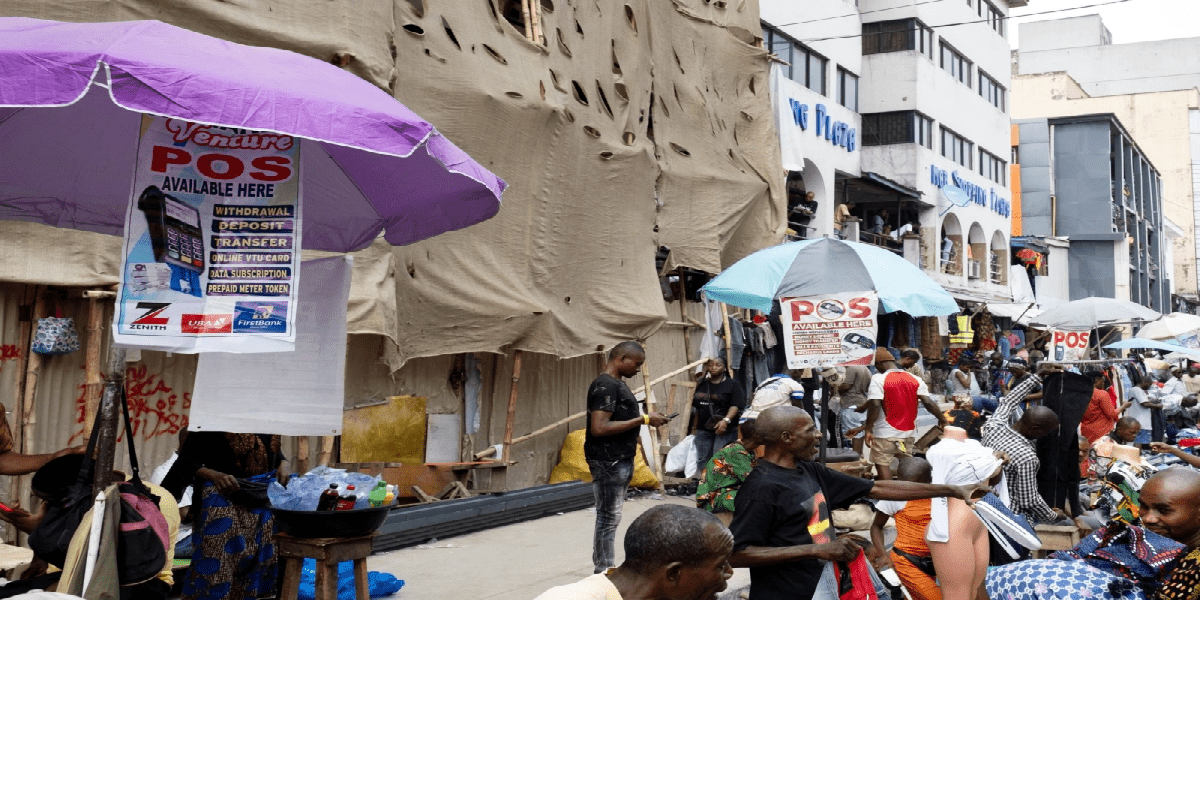





































What the ₦1.2m daily POS limit means for daily banking in Nigeria
 BANK
BANK
 2024
2024
 2024
2024
 READ
READ
The Central Bank of Nigeria (CBN) has reaffirmed a ₦1.2 million daily transaction cap for point-of-sale (POS) and agent-banking operators under new operational guidelines released on October 6, 2025.
The rule, which states that each agent’s daily cumulative cash-out must not exceed ₦1.2 million, is not new. It first appeared in the CBN’s earlier Circular on Cash-Out Limits for Agent Banking Transactions issued in December 2024, and has now been reinforced in the broader 2025 guideline that consolidates all previous rules on agency banking.
The guideline also maintains a ₦100,000 daily withdrawal limit per customer and ₦500,000 weekly withdrawal cap, as stipulated in the 2024 document. The intent, the Bank says, is to promote transparency, curb money laundering, and strengthen the traceability of cash transactions within Nigeria’s fast-growing agent-banking ecosystem.

Nigeria’s agent-banking industry, which includes POS agents, super-agents, and fintech aggregators, has grown into one of Africa’s largest informal financial networks. Data from the Shared Agent Network Expansion Facility (SANEF) shows the country has over 2 million active POS terminals as of 2025, compared to fewer than 350,000 in 2019.
This surge reflects how POS and mobile-money agents have become the de facto banking system for millions of Nigerians. A 2023 EFInA study found that 36 per cent of adults used a POS agent for deposits or withdrawals in the previous year, while formal bank-branch visits dropped sharply after 2020.
Read also: CAC registers 100,000 PoS operators out of 250,000 projection
But growth has come with problems. Reports of fraud, overcharging, and unregistered agent operations have risen alongside complaints from banks about poor transaction monitoring.
According to the Nigeria Inter-Bank Settlement System (NIBSS), fraud attempts via agent channels jumped from ₦9 billion in 2021 to over ₦22 billion in 2023, much of it linked to weak oversight and cash-handling loopholes.
The CBN’s new framework appears to be an attempt to restore order to that chaotic expansion – defining how much cash agents can process, where they can operate, and who supervises them.
Read also: 2 out of 3 in-person payments in Onitsha processed with Moniepoint PoS – Report

The ₦1.2 million limit and why it matters
Under the new rule, an agent’s total daily cash-out, that is, the sum of all withdrawals processed, cannot exceed ₦1,200,000. This limit applies regardless of the number of customers served. In practice, it caps how much physical cash a POS or agency outlet can dispense per day.
Each customer, however, remains subject to a separate limit: ₦100,000 per day and ₦500,000 per week for cash-outs across all channels. The combination of these caps aims to restrict excessive cash circulation and push Nigerians toward electronic transactions. This is part of the CBN’s broader cashless economy agenda.
For context, Nigeria remains heavily cash-dependent despite the boom in digital wallets. NIBSS data shows that as of mid-2025, about 80 per cent of retail payments under ₦5,000 were still made in cash.
That persistence has kept demand for POS withdrawals high, especially in rural and peri-urban areas where ATMs are scarce.
Read also: Opay, PalmPay, or Moniepoint? Here are the top POS operators in 5 major Lagos markets
The ₦1.2 million ceiling, therefore, limits how much liquidity an agent can physically hold and dispense. This is a move the Bank argues will reduce theft risk and strengthen anti-money-laundering controls.
Industry groups say the rule could have mixed consequences. For urban agents who process high-volume withdrawals daily, the ₦1.2 million cap might force them to turn customers away or split transactions across days. In rural areas, where agents often serve entire communities and double as mini-banks, the impact could be sharper.
A report by Enhancing Financial Innovation & Access (EFInA) estimated that 60 per cent of rural Nigerians rely on POS or mobile-money agents as their main access point to cash. Limiting how much those agents can disburse could unintentionally reduce the availability of cash in remote towns where traditional bank branches are absent.
However, regulators counter that the guideline isn’t meant to shrink operations but to formalise them. By compelling operators to register under licensed “principal institutions”, such as banks, mobile-money operators, and super-agents, and report their volumes monthly to the CBN, the circular seeks to bring visibility to a largely informal system.
The latest guidelines show a shift toward harmonising Nigeria’s patchwork of financial-service rules. Before now, the CBN, the Nigeria Deposit Insurance Corporation (NDIC), and the Financial Intelligence Unit each issued separate directives touching on agency banking, often creating overlap and confusion.

Read also: Nigerian fintech drives POS surge, records ₦18.32trn transactions in 2024
This means POS operators are now officially recognised as part of the agent-banking framework rather than informal payment vendors.
What Nigerians should expect
For everyday users, the new rules may bring both clarity and short-term friction. Cash-heavy businesses might struggle to withdraw large sums in a single day, while agents could face delays adjusting their systems to comply.
But the upside could be greater consumer protection.
The Bank is tightening a system that has long operated in regulatory grey zones by setting explicit limits, requiring geo-fenced devices, and mandating regular reporting. It also signals that the CBN wants to discipline cash handling without reversing financial inclusion gains.

